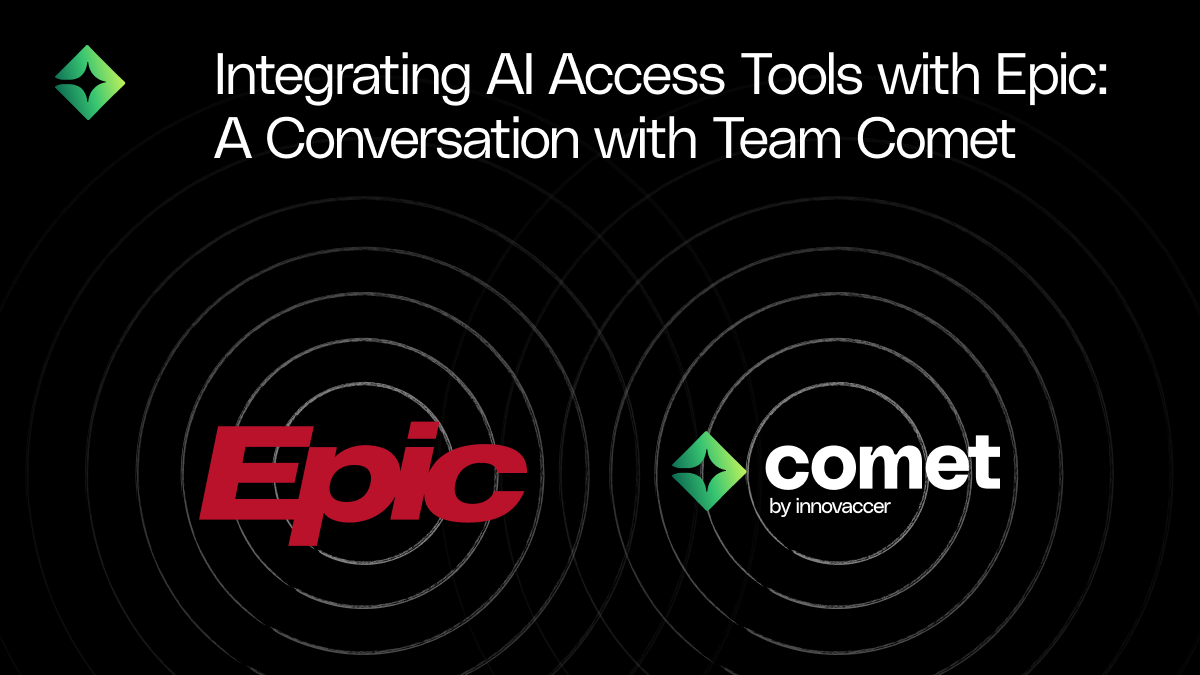How Technology is Revolutionizing Care Management: AI in Healthcare


Care management is a coordinated effort in value-based care that aims to improve patient outcomes, reduce costs, and enhance overall care delivery. However, till the recent past, care management in the USA suffered heavily due to a lack of data interoperability and heavy reliance on manual processes.
The gaps in the traditional processes led to the inception and rise of healthcare innovations such as artificial intelligence, telemedicine, remote patient monitoring, and blockchain, which have enhanced care delivery drastically and improved patient outcomes.
Today, providers are making better-informed decisions thanks to AI-powered tools. These intelligent solutions analyze vast amounts of data in real time, uncovering patterns that cannot be detected manually.
With predictive analytics, providers can identify at-risk patients early. This enables proactive interventions that reduce readmissions. The result? Improved patient outcomes and financial sustainability.
As patient needs continue to evolve, the integration of technology has become a necessity. Read on to understand how technology has transformed some of the most critical areas of care management.
Transform Care Management with AI
See how AI-driven care management can reduce costs, close care gaps, and boost patient outcomes.
Get a Demo Today!Role of Technology in Modern Care Management: AI in Healthcare
The boom of AI in healthcare is a small indication of the impact that technology has already and will also be making in the healthcare industry in the near future. Some of the key technologies shaping care management are:
- AI-based Care Management Solutions: These next-gen care management software use AI technology to provide proactive care. Through these, providers are able to gain an integrated view of a patient's health, reduce care gaps, automate campaigns, and monitor the overall ROI. These have pre-built care assessment protocols and allow point-of-care alerts for care gaps. Driving effective care management.

- Telehealth: Patients in rural locations can get good care at ease through online consultation. Rural physicians can also reach out to other specialists and verify a diagnosis or treatment, which results in improved care coordination.

- Remote-patient Monitoring: With the aid of digital tools such as smart sensors and wearable devices, providers can capture patient health information remotely, like blood pressure and glucose level. RPM enhances care management through early detection of illness and minimization of hospital readmissions.
- IoT and Smart Hospital Infrastructure: The hospital infrastructure powered by the Internet of Things (IoT) gives real-time monitoring and resource distribution, enhancing the management of care. With automated inventory management systems, healthcare professionals can reduce errors and avoid stockouts.
Improving Patient-centered Care with AI Technology
AI transformation has brought patients to the center of modern-day care management. From customized care plans to digital health education, technology is empowering patients to make more informed decisions about their health.
AI has been one of the key factors for healthcare advancing to a more patient-centered approach.
- Enhancing engagement with AI: Patients often miss follow-ups or fail to adhere to their treatment plans. With AI, providers can send automated reminders to ensure that patients show up for their appointments.
- Tailoring care plans for individual needs: Traditionally, providers employed a “one-size-fits-all” approach to deliver care. However, healthcare technology innovations are changing the status quo and enabling providers to deliver personalized care. With AI and predictive analytics, providers can create customized plans for patients based on genetics and lifestyle, leading to more effective care.
- Reducing wait times for a better experience: Long wait times and limited access to healthcare staff often frustrate patients. But, AI-powered chatbots and virtual assistants are now scheduling appointments and answering common health questions. This is not only improving patient support but also reducing the administrative burden on healthcare providers.
- Empowering patients with information: Patient portals are being widely adopted by healthcare organizations to give individuals more control over their health. These tools provide patients access to their medical records, prescriptions, appointments, and various educational resources, enabling them to take a more active role in managing their health.
- Addressing health-related social needs: Due to fragmented care, providers often overlook factors such as housing and food security, which influence patient outcomes. Advanced care management platforms integrate medical and social determinants of health data (SDoH). This allows providers to coordinate with community-based organizations (CBOs) and address both the medical and non-medical needs of patients.
Is Your Care Management Strategy Future-Ready?
AI-powered platforms are reshaping healthcare - helping providers make smarter, faster decisions.
Schedule Your DemoCompliance and Ethical Challenges in Healthcare Tech
Some of the challenges when implementing technology in care management include:
- Data security and privacy issues: Digital tools contain a vast amount of sensitive patient information. Healthcare organizations must protect patient data from potential breaches or unauthorized access by implementing stringent security measures. Complying with data protection regulations such as HIPAA and GDPR is also essential to maintain patient trust and safeguard their interests.
- Patient consent: Patients must have complete information on the digital health tools they are using to make informed decisions. Healthcare providers must ensure that patients are aware of the risks and benefits of the various tech-driven healthcare services that are being offered to them.
- Digital divide and accessibility: Not everyone has equal access to technology. Elderly patients or those living in underserved areas may struggle with technology adoption. Medical ethics mandate that healthcare organizations must address this gap by ensuring that digital tools are user-friendly and provide alternatives if required.
- Algorithmic bias and fairness: AI-powered healthcare solutions diagnose and predict treatments based on the data they are trained on. If they are not trained on a diverse population set, this can lead to incorrect treatment recommendations for certain populations. Thus, healthcare organizations must ensure that they are regularly auditing the data and using diverse data sets to train their AI solutions.
The Next Frontier of Care Management Technology
Several technological trends are shaping the future of care management in healthcare. Here’s what we can expect:
- Blockchain technology: As concerns around data security and privacy grow, blockchain technology will provide healthcare organizations with tamper-proof record keeping and allow secure data exchange.
- Augmented reality (AR) in care management: AR will improve care coordination by providing real-time and interactive data visualization that helps providers access patient information easily.
- Digital twins in healthcare: Digital twin technology will help providers create virtual replicas of patients by integrating data from various sources, allowing providers to test their treatments before implementation.
Why Now is the Time to Embrace Healthcare Technology
Healthcare costs have been increasing at the speed of light, making a direct impact on patient outcomes. The role of technology is paramount to making healthcare more value-based and patient-centric. Some of the most pressing issues in healthcare - medical errors, clinician burnout, and care gaps, all have corresponding technological solutions.
Undoubtedly, the future of care management is digital. Organizations must find a way to leverage technology as they shift to value-based care. This will not only boost patient engagement but also reduce hospital readmissions, saving costs.
In conclusion, organizations must act now to stay ahead in an increasingly tech-driven healthcare landscape.
Take the Next Step
Healthcare technology is changing the future of patient care. Are you ready to improve your care management strategy?
Get a Free Demo Today!

.png)






.avif)









.svg)
.svg)

.svg)

